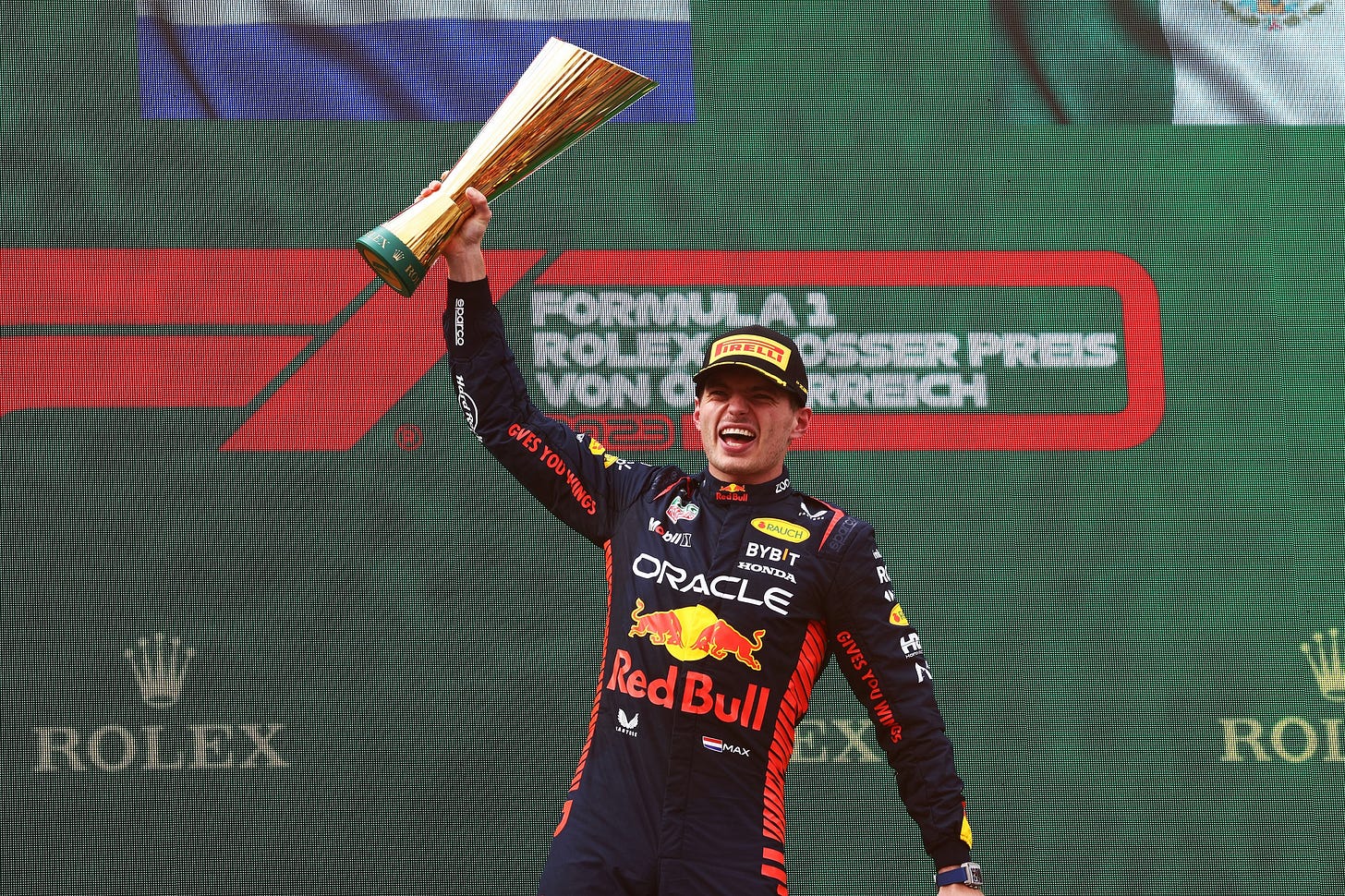Red Bull Racing's financial gains mirror Verstappen's unstoppable 2023 season
Red Bull’s revenue crosses the £300-million mark for the first time.

A dominant Formula One 2023 campaign saw Red Bull Racing’s revenue cross the £300-million mark for the first time, the team’s latest accounts have revealed.
Red Bull Racing Limited reported a turnover of £307.4m, an increase of nearly £30m compared to the previous year, according to the team’s annual report and financial statements for the year ended 31 December 2023.
Turnover in 2022 was £278m.
Red Bull driver Max Verstappen’s record-breaking performances and new commercial deals have contributed to the winning constructor's financial growth.
“The 2023 Formula One season was dominated by one man and his bull,” said Red Bull. “Max Verstappen delivered the most dominant season ever achieved by a Formula One driver, securing 19 race wins and 575 championship points — 290 more than his nearest rival and teammate, Sergio Perez, on his way to a third consecutive World Drivers’ Championship.”
Red Bull also credited Perez for his efforts that helped the team secure a 1-2 finish for the first time in their 20-year history.
Red Bull’s on-track success attracted new commercial partners.
“Commercially, the team’s performance continues to be exceptionally strong,” Red Bull said, having acquired seven new partnerships.
Five partners are based in the United States, a market that has been witnessing a steady increase in Formula One fans and is highly valued by sports organisations.
Profit generated from core business activities was nearly £3m, up £667,000 from 2022.
After taxes, Red Bull made a total comprehensive profit of £1.2m.
Investment in research and development doubles
The six-time constructors’ champions splashed nearly £26m on one of the most dominant cars in Formula One history.
The team spent £13m in 2022, when they won the constructors' title for the first time since 2013, when Sebastian Vettel won his fourth consecutive Drivers’ Championship.
“The team’s success in 2023 was unmatched and unprecedented, breaking records including a win streak of 14 consecutive races and a 95.45% overall win rate,” the Milton Keynes outfit added.
Red Bull’s research and development (R&D) expenditure was half of that of Mercedes, who spent over £50m on their 2023 car.
Mercedes scored a little less than half of Red Bull’s total points that year, finishing second in the constructors' standings behind them.
Winning the constructors' title comes at a cost.
The winning team is allowed 70% of aerodynamic testing time, which is a crucial process for developing the car to stay ahead or compete with the rest of the pack.
This move was introduced in 2009 to level the playing field and bring teams closer.
Aerodynamic testing time increases by 5% for each position lower in the constructors' standings. This percentage is calculated from a predefined baseline of testing time set by the FIA. Since Mercedes finished second in 2023, they will be allocated 75% of the baseline testing time, while Ferrari, who finished third, will receive 80%.
Red Bull were received an additional 10% reduction in aero testing after breaching the cost cap regulations in 2022.
Rival teams voiced that the penalty was not severe enough.
However, Red Bull team principal Christian Horner felt that the penalty would also impact the 2024 car, according to Autosport.
"It gives an advantage to our competitors, which is why they were pushing so hard for a draconian penalty," said Horner.

A successful season on-track allows teams to shift focus to the car for the upcoming campaign.
There are six Aerodynamic Testing Periods (ATP) in a year, according to the Aerodynamic Testing Restrictions (ATR) of the FIA Formula One Sporting Regulations.
Teams will analyse data obtained from these testing periods, which is then used to optimise the aerodynamics of the car in order to improve on-track performance.
With Red Bull winning races in a commanding fashion, it is likely that the team allotted some time from the latter ATPs on the 2024 car.
It is unclear whether the reduced aero testing time has hamstrung Red Bull’s current campaign. It could also be one of the various contributing factors that has seen Ferrari, Mercedes, and McLaren snatch wins in the last eight races.
After a dominant start to the 2024 campaign, Red Bull have now slipped behind McLaren in the constructors' championship.
Verstappen leads McLaren’s Lando Norris in the drivers' championship by 52 points.
With six races to go, Norris could still mathematically clinch the championship (win all races and gain the fastest lap) if Verstappen finishes lower than second in any of the upcoming races.




